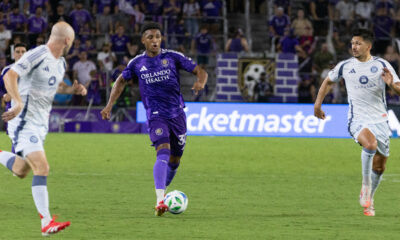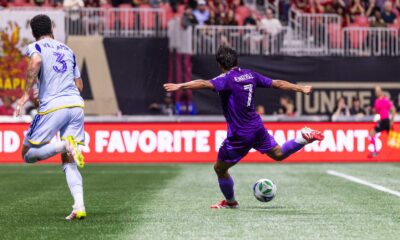Orlando City
Orlando City vs. CF Montreal: Final Score 4-1 as Lions Suffer First Road Loss of 2022
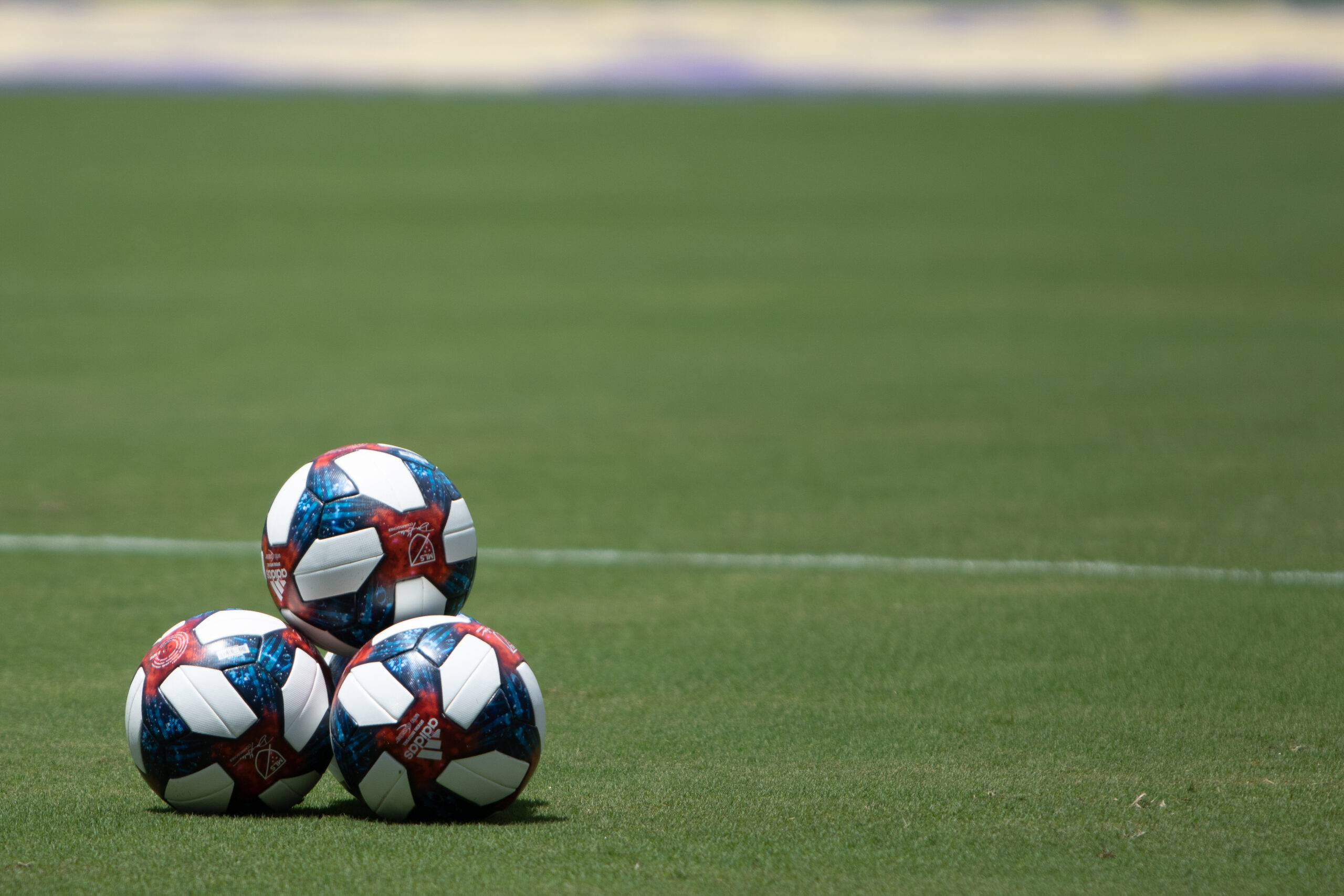
For the second time in three matches, Orlando City didn’t look like it belonged on an MLS pitch. The Lions were — well, the word awful comes to mind — in a deserved 4-1 road loss to CF Montreal at Stade Saputo. Orlando (5-4-2, 17 points) lost on the road for the first time in 2022 and never seemed likely to challenge Montreal (5-3-2, 17 points) once the hosts scored their first goal.
The Lions scored a set piece goal to cut a 2-0 deficit in half against the run of play in the second half but then handed two more goals to Montreal with the poor giveaways that plagued the team all game long. CF Montreal set a club record by extending its unbeaten run to seven games (5-0-2).
Joao Moutinho provided Orlando’s only goal on one of just two shot attempts. Joel Waterman, Djordje Mihailovic, Joaquin Torres, and Zachary Brault-Guillard all chipped in goals for Montreal.
“Certainly a difficult afternoon for us (against) a team that had a lot of initiative going forward,” Orlando City Head Coach Oscar Pareja said after the match. “And we couldn’t, first get the ball back, and second create much. The mistakes that we did allowed them to score the goals. Very fair result for Montreal and we’re just going to push forward, just keep organizing things, and being back on results.”
Pareja’s lineup included Pedro Gallese in goal behind a back line of Moutinho, Thomas Williams — in for the suspended Robin Jansson — Rodrigo Schlegel, and Ruan. Sebas Mendez joined Cesar Araujo in central midfield to try to provide more coverage for the back line. The attacking midfield line included Facundo Torres, Mauricio Pereyra, and Benji Michel, with Alexandre Pato as the main strike threat.
Earlier in the day, OCB sent center back Brandon Hackenberg to the senior side on a short-term loan to provide coverage in central defense in Jansson’s absence. Hackenberg was on the bench along with newly acquired winger Jake Mulraney.
The opening minutes were a bit sloppy on both sides but Montreal got the first good chance to score six minutes in. Just after Schlegel blocked a Joaquin Torres shot from the top of the box, the ball cycled out wide to Montreal’s right. A cross back into the area was met by Romell Quioto, who was hardly bothered by Williams or Schlegel but he sent his free header over Gallese’s crossbar.
6' Le centre de Johnston trouve Quioto dans la surface mais son tir de la tête manque de justesse.
Close call from @QuiotoSamir.#MTLvORL | 0-0 | #CFMTL pic.twitter.com/rFCpvw9Q7d
— CF Montréal (@cfmontreal) May 7, 2022
Two minutes later, Ruan made a sliding attempt to deny a pass and clear the ball but instead he simply set the ball up nicely for Lassi Lappalainen to run onto in the box. Lappalainen fired from the left side of Montreal’s attacking side but Gallese made a big save.
8' Au tour de Lappalainen de s'essayer, mais le gardien adverse fait l'arrêt.
Lassi breaks in behind but his shot is stopped.#MTLvORL | 0-0 | #CFMTL pic.twitter.com/2HlPMvTQzn
— CF Montréal (@cfmontreal) May 7, 2022
Orlando’s first foray into the attacking end didn’t take place until the 10th minute. Moutinho sent in a cross but former Lion Kamal Miller cleared it away. The Lions tried to recycle down the left wing but Michel’s left-footed cross was right at goalkeeper Sebastian Breza.
Facu Torres fired Orlando’s first shot attempt in the 14th minute after Miller failed to properly deal with a ball over the top that was intended for Pato. His shot was well off target and since Pato was behind the defense there was no option for the winger to play a through ball for the Brazilian.
A minute later, Mihailovic was nearly in for a clear shot on target but Mendez did well to break up the play at the top of the box. Just after that, Ruan coughed up the ball in his own defensive end. Pereyra committed a foul, which handed a free kick to the hosts. Mihailovic played the free kick short and received the ball back quickly and fired a shot on target. The attempt was right at Gallese, who made the easy save in the 18th minute.
Montreal’s wingbacks were pushing higher and higher and it nearly put Mihailovic in behind in the 20th minute but Schlegel did well to get back and break up the play. However, he conceded a corner, which led to Montreal’s opener. The cross into the box hit Michel and bounced toward goal. Waterman was standing there all alone and scored. The initial ruling was that the play was offside, and Waterman was well behind the defense, but after video review, the referee saw that the ball wasn’t passed by a Montreal player and instead was knocked behind to the center back by Michel, so the goal was awarded, giving the hosts a 1-0 lead.
Après un long suspense…@16Waterman : YOU'RE NOW A @MLS SCORER! #MTLvORL | 1-0 | #CFMTL pic.twitter.com/XhmtO0oiVM
— CF Montréal (@cfmontreal) May 7, 2022
The hosts should have doubled the lead in the 36th minute. The Lions lost the ball in the attack and Montreal quickly countered. Quioto put in a good ball across for Lappalainen in front. Ruan overran the play, giving the wingback a 1-v-1 opportunity against Gallese but he sent his shot just wide of the right post.
Gallese had to make a key save in the 40th minute after Mendez tried to play too fancy in his own end and turned it over. The ball cycled left to right and was slipped into Mihailovic down the right. He’d gotten in behind Araujo and Williams was slow to react, giving the winger an open look at goal but Gallese did well to get down and make the save.
40' Joaquin Torres fait une passe parfaite pour Djordje Mihailovic, mais son tir est stoppé.
Close to doubling our lead thanks to a nice combination between @JooaquinTorres and @DjoMihailovic. #MTLvORL | 1-0 | #CFMTL pic.twitter.com/1ZYnYuWbWV
— CF Montréal (@cfmontreal) May 7, 2022
Each side wasted a set piece late and the hosts took their deserved 1-0 lead into the break. Montreal dominated the opening half, leading in possession (56.4%43.6%), shots (8-1), shots on target (4-0), corners (2-1), and passing accuracy (89.7%-87.1%). The Lions were fortunate to be within one, offering nothing in the attack and getting bossed around by a Montreal central midfield that was missing Victor Wanyama and Ismael Kone.
Montreal picked up where it left off after the restart. Orlando turned Montreal over at midfield but poor awareness by Michel allowed the hosts to easily dispossess the winger and go the other way, where they won a corner. Miller had a free header but didn’t get all of it and Gallese collected.
Montreal doubled the lead anyway shortly afterwards. Mendez took the ball away in midfield but instead of getting forward in transition, Pato played the ball backward. Orlando worked it around but again turned it over and Montreal bombed forward in transition. Alistair Johnston got to the end line and cut the ball back across the front of goal for Mihailovic to tap in, building the lead to 2-0 in the 52nd minute.
Who else??@DjoMihailovic with 5 goals + 4 assists on the season. pic.twitter.com/zZXN8z98NT
— Major League Soccer (@MLS) May 7, 2022
Down two goals, Pareja made three substitutions, sending on Mulraney, Ercan Kara, and Junior Urso for Michel, Pato, and Mendez. Mulraney’s first touch nearly produced something as his dangerous cross into the box required Breza to be quick off his line to prevent a scoring chance in the 58th minute.
Moments later, Mathieu Choiniere sent a shot just inches wide of Gallese’s goal off a slight deflection. The ensuing corner kick again rattled around the area but this time Orlando cleared.
A poor header attempt by Schlegel allowed Montreal to bomb forward again and Quioto ended up on the left side. Williams did well to keep him from getting into better position and he fired a tough-angle shot that Gallese blocked in the 67th minute. Three minutes later, Gallese made another vital save.
The Lions pulled a goal back two minutes after that, when pressure from Mulraney won a corner. Pereyra’s service picked out Moutinho in the area and the left back nodded home to make it 2-1 in the 72nd minute.
Game on!
João Moutinho rises up and heads home the corner to cut the deficit in half. 2-1. pic.twitter.com/36F8iLkc6D
— Major League Soccer (@MLS) May 7, 2022
With the lead cut in half and everything to play for, Orlando…didn’t. The Lions couldn’t maintain possession, string together multiple passes, deliver a single accurate ball when trying to break lines, and simply didn’t make Montreal work very hard on defense. Orlando failed to even get another shot attempt off in the final 18 minutes plus five minutes of injury time.
Instead, the Lions conceded two more goals and both were off turnovers.
In the 81st minute, Joaquin Torres restored the two-goal advantage on a play that Orlando should have dealt with. Williams did well against substitute Kei Kamara but stopped playing when he thought the ball went over the end line for a goal kick. But Kamara’s hustle allowed him to get a foot around the ball and keep it in play. Williams was standing still, looking at the assistant referee when Kamara ran back onto the field past him and kept the play going. Montreal cycled it around and it ended up on the right, where it was crossed by Brault-Guillard to Torres, who spun off of Williams and put the game away with a cannon shot past Gallese.
Teamwork on display. 🤝
Joaquin Torres makes it 3-1 to @cfmontreal. pic.twitter.com/J1UJtPqSKl
— Major League Soccer (@MLS) May 7, 2022
Three minutes later, substitute Andres Perea gave the ball away with a horrible first touch to hand Montreal another transition. Brault-Guillard had little angle to shoot at from the right side, but he made an inch-perfect back-post shot count, beating Gallese to make it 4-1.
Defense –> Offense@ZacharyBrault creates the turnover and puts it away to make it 4-1. pic.twitter.com/w5UTfPt9dC
— Major League Soccer (@MLS) May 7, 2022
Kamara came with inches of making it five goals for Montreal in stoppage time but that was as bad as it got. Montreal dominated the stat sheet at the end of the game, leading in possession (59%-41%), shots (20-2), shots on target (10-1), corners (7-2), and passing accuracy (88.3%-83.6%).
As comprehensive as the loss to the New York Red Bulls was two weeks ago, this one was worse. Pareja didn’t have an answer for the continued stagnation of the offense but accepted responsibilty for it after the match.
“I am responsible,” he said, “just helping out to create the sequences, helping out to be the team that we want to be. And offensively when we are not being that team that is threatening, that is creating and all those things, obviously somebody needs to give some explanation. What happened is that we need to execute. It’s easy to say, but today we looked controllable and we did not threaten much behind, but that is something I need to help them out with.”
“I have to say, they were decent,” Mulraney said of Montreal, getting on the field after just arriving with his new team a couple of days ago. “It’s hard to come on the road in this league. I’m excited about this group. I feel there’s a real togetherness. So, we’ll see.”
The Lions have just 12 shot attempts and five shots on target over the last three MLS matches, and there’s not much time between now and the U.S. Open Cup match this midweek to get the offense figured out.
“This is a short turnaround. We have to focus on the next game and see how can we grow up with a team,” Pareja said. “It’s the task to do.”
The Lions return home for a Tuesday night fourth-round match-up with the Philadelphia Union in U.S. Open Cup play before heading back to Canada to face Toronto FC next Saturday.
Opinion
Orlando City Has Been Better than Expected Halfway Through the Season
While there was plenty to worry about at the start of the season, Orlando has had a good first half of 2025.
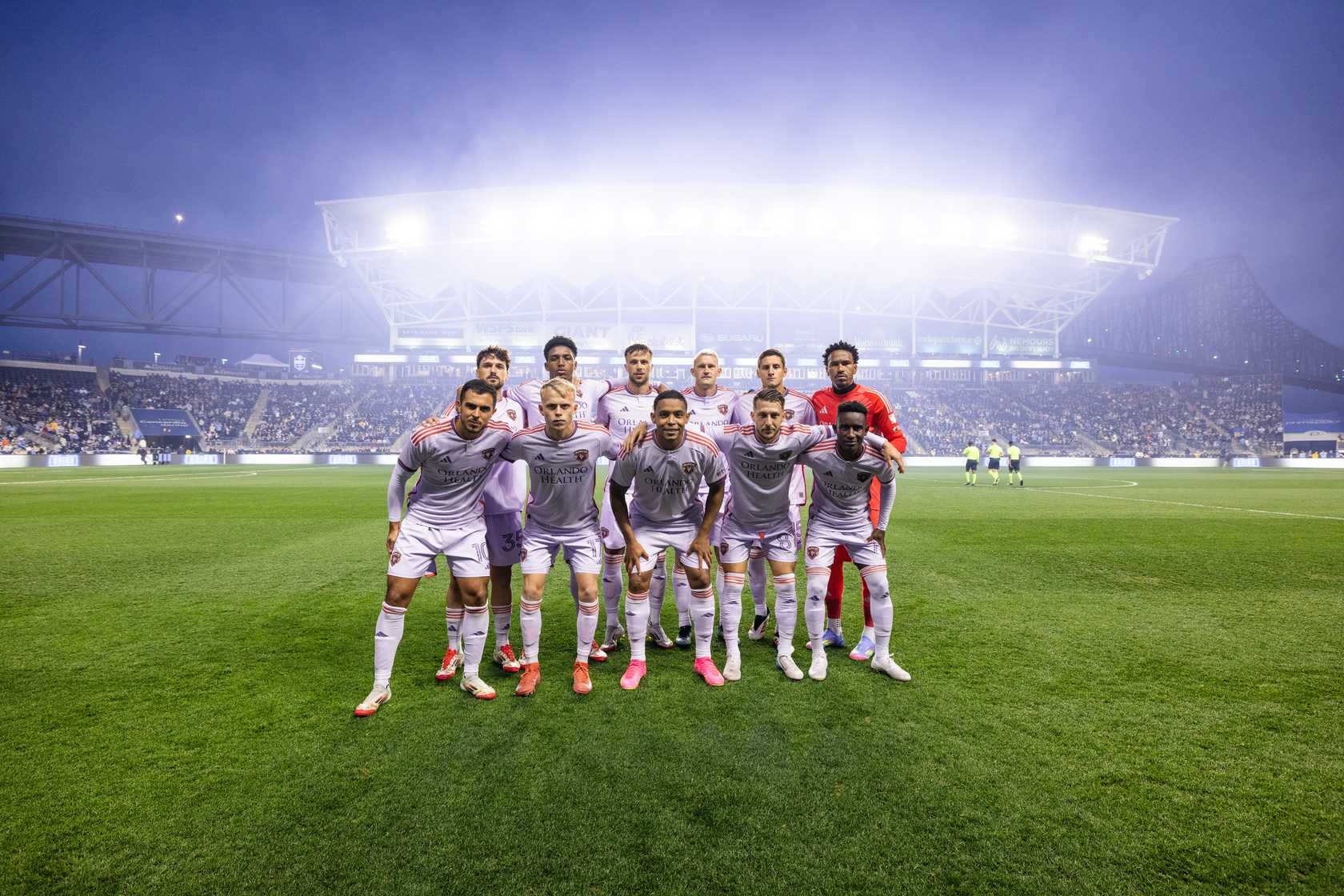
With 18 matches in the books, we’ve moved just past the halfway point of the 2025 Major League Soccer season, and based off my feelings before Orlando City played its opening game of the season, the Lions have performed above expectations so far. There were plenty of valid reasons to be concerned heading into the year. Orlando had sold its all-time leading goal scorer, and there were questions about whether he’d been adequately replaced. There were worries about depth at multiple positions, and the defense was coming off an uncharacteristically poor year. Here we are though, with the Lions sitting fifth in the Eastern Conference, just three points out of second place and seven points out of first. So how did we get to this point?
For one thing, Marco Pasalic has been much better than I (and I think a lot of other people) expected him to be. The Croatian has six goals and four assists across 18 matches, and is second on the team in both categories. He scored 10 goals in 49 appearances in the Croatian first division before coming to Orlando and was extremely one-footed, which was enough evidence to sow real doubt about whether he could adequately replace the impact of Facundo Torres.
So far, it’s mostly been so good. His direct style of play is a good complement to the styles of Martin Ojeda and Luis Muriel, and he’s largely hit the ground running in a league that can be difficult to adapt to. It hasn’t been perfect, as he’s still very one-footed, and can sometimes disappear if he’s stringently man marked, but on the whole there’s been much more good than bad.
Speaking of Ojeda and Muriel, they’ve also had strong years. Ojeda in particular has continued his great second half of the 2024 season and has nine goals and five assists in 18 games to show for it. He looks fast, confident, and decisive and is a far cry from the player who struggled frequently during his first year as a Lion. Muriel has cooled off a little after a scorching start to 2025, but he still has six goals and three assists in 18 matches. He looks vastly improved from last year, when he looked a little off the pace of play and quickly lost the starting striker role. He still has a tendency to not be as selfish as he needs to be in front of goal, but he’s been much better than 2024.
I mentioned depth being a big concern, and not just at one position. At the beginning of the season Orlando City was, and arguably still is, thin at striker, center back, defensive midfield, and fullback. Duncan McGuire was injured to start the year and is now injured again, leaving Orlando with two true strikers in Muriel and Ramiro Enrique. There was no true backup left back, only one reliable backup center back, and Dagur Dan Thorhallsson starting at right back meant that defensive midfield depth consisted of rookie Joran Gerbet and the Swiss army knife that is Kyle Smith.
Things have mostly worked out though. David Brekalo has supplanted Rafael Santos, meaning the Brazilian is now a proven backup option at the position, and Smith has filled in there as well. That means that in games in which Rodrigo Schlegel or Robin Jansson are unavailable, Brekalo fills in at center back, Santos starts at left back, and Smith is the backup for both positions, so it isn’t a flawless system. Gerbet has been playing better and better and got some valuable minutes when Eduard Atuesta and Cesar Araujo were unavailable. His emergence has been a crucial piece of the puzzle this year. So too has the rise of Alex Freeman, as his locking down the right back role has allowed Thorhallsson to fill in at defensive midfield, attacking midfield, and right back. The situation isn’t perfect, as a couple untimely injuries to the wrong guys would leave the Lions looking pretty threadbare, but so far it’s just about worked.
Another big concern was the defense. The Lions conceded 50 goals in the regular season last year, which was tied for the second-most of any Eastern Conference playoff team and fourth-most of any playoff team. With no defensive signings and the aforementioned depth concerns, there were plenty of reasons to worry about Orlando’s ability to keep the ball out of the back of the net.
Things have looked much better in 2025, though. The 22 goals OCSC has conceded are the fifth-fewest in the league, and Pedro Gallese’s eight clean sheets are tied for most in the league. Aside from a few egregious defensive performances against the Philadelphia Union, Atlanta United, and the Chicago Fire, things have mostly been tidy at the back, and when they haven’t been, El Pulpo has been around to pick up the slack. Again, things haven’t been perfect, as there have been moments where individual and collective errors have hurt the team, but it’s been better.
I thought the Lions would struggle this year. Going into the start of the season, we were talking about a team that lost Torres, arguably didn’t do enough to strengthen the team across the board, was facing depth issues, and was dealing with a leaky defense — all while pretty much every other contender in the East got stronger on paper. Instead, OCSC tied a club-best unbeaten streak and is just three points out of second place.
That being said, the East is so tight that Orlando is only five points above the playoff line, and injuries to the wrong guys could easily topple the fragile ecosystem that is the depth chart, but so far things are going better than I thought they would be. There are still a lot of matches to play, but this isn’t a bad position to be in at the halfway mark.
Lion Links
Lion Links: 6/20/25
Orlando Pride take on Racing Louisville FC tonight, Orlando Pride players called up by Zambia, USMNT beats Saudi Arabia, and more.
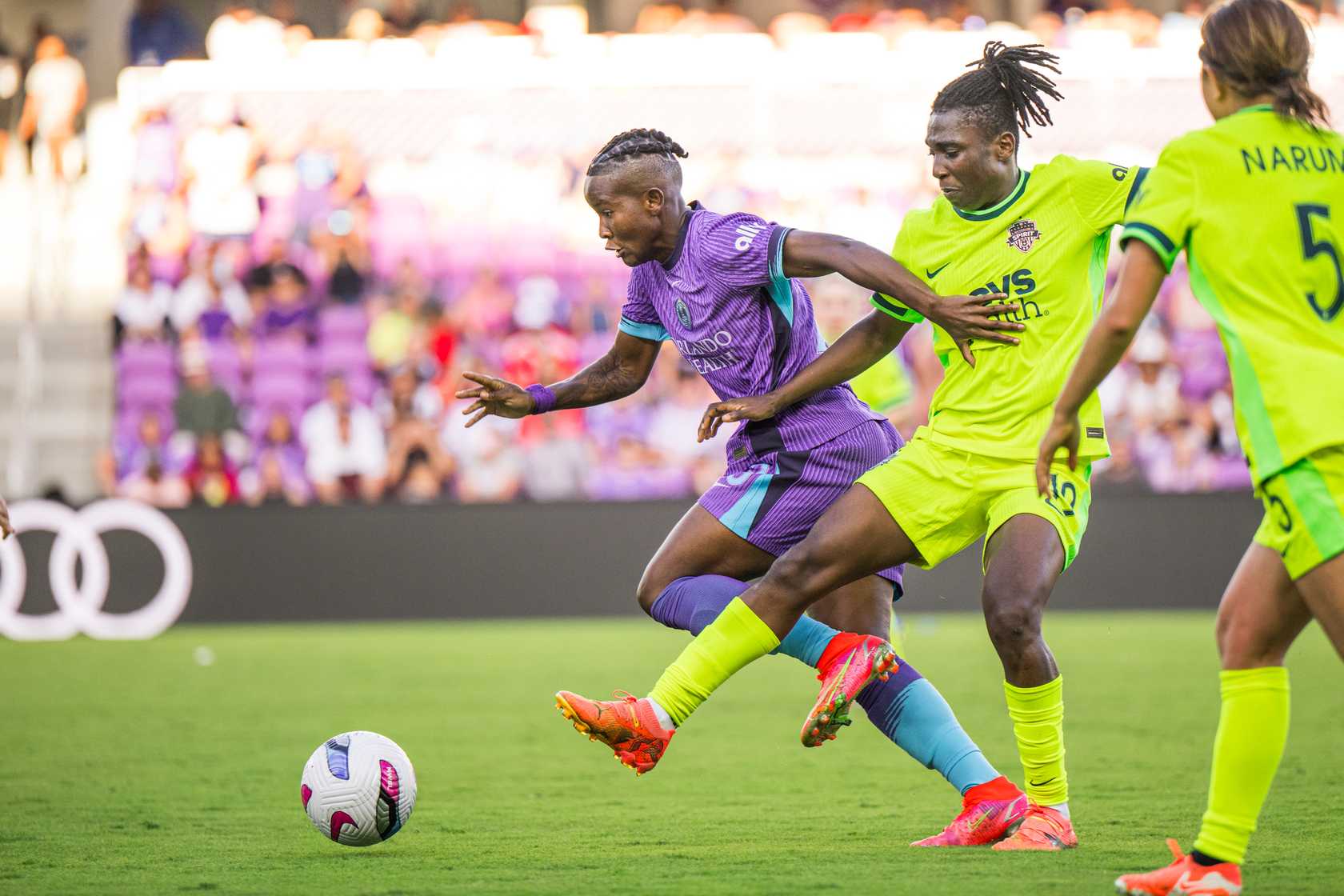
Happy Friday! June continues to fly by as we enjoy the buffet of soccer here in the U.S. this month. I’ll be spending most of the weekend working, but I am hoping to get some reading done after being gifted some books for my birthday. But enough about me, let’s jump right into today’s links!
Orlando Pride Face Racing Louisville Tonight
The Orlando Pride are on the road tonight for a match against Racing Louisville FC at 8 p.m. in the final game before a league break until August. Going into the break with four straight wins would be nice for the Pride, but they’ve struggled at Lynn Family Stadium over the years. Louisville enters this match following a 4-2 loss to the league-leading Kansas City Current and has scored eight goals over the past three games. Orlando’s defense has been phenomenal this year, conceding just eight goals this season and only one during this win streak. Midfielder Cori Dyke spoke on how the team is finding its groove and shutting out opponents.
Zambia Calls Up Orlando Pride Trio
Barbra Banda, Grace Chanda, and Prisca Chilufya were all called up for Zambia’s CAF Women’s Africa Cup of Nations roster ahead of this summer’s tournament. Banda has eight goals this season with the Pride and had four goals at last year’s Olympics, including a hat trick against Australia. The Copper Queens claimed third place in the 2022 edition of this tournament, and they’ll need to be at their best to win this summer against tough opponents like South Africa and Nigeria. Zambia’s tournament campaign will kick off on July 5 against the host nation, Morocco.
USMNT Beats Saudi Arabia to Qualify for Quarterfinals
The United States Men’s National Team won 1-0 against Saudi Arabia to clinch a spot in the quarterfinals of this year’s Concacaf Gold Cup. After a scoreless first half, the Yanks broke through in the 63rd minute thanks to a free kick. Sebastian Berhalter served the ball on a silver platter to Chris Richards, who buried it for the crucial goal. The defense did well to secure its second shutout of the tournament, with Orlando City’s Alex Freeman starting at right back yet again. The USMNT will play Haiti on Sunday and should be able to win the group for a smoother path in the knockout stage.
FIFA Club World Cup Roundup
An MLS club finally won a game during this year’s FIFA Club World Cup, with Inter Miami beating Porto 2-1 in Atlanta. Lionel Messi scored the winner from a free kick to complete the comeback after conceding an early goal. The Seattle Sounders had a rougher day, falling 3-1 to Atletico Madrid, with Pablo Barrios scoring a brace. Former Lion Facundo Torres started for Palmeiras in the Brazilian club’s 2-0 win over Egypt’s Al Ahly.
Today’s action features more soccer at Inter&Co Stadium, with Benfica and Auckland City squaring off in the City Beautiful. Our Michael Citro will be on hand to report on it. Elsewhere in the U.S., Chelsea will take on Flamengo, LAFC will face ES Tunis, and Bayern Munich will play Boca Juniors.
Free Kicks
- Canada Head Coach Jesse Marsch, who is already serving a suspension for misconduct during the Nations League, is under investigation by Concacaf for incidents during this Gold Cup. Reports detail that Marsch disregarded regulations and used offensive language toward match officials.
- Kylian Mbappe was discharged from the hospital after suffering from a case of gastroenteritis. It’s unclear if or when he’ll play for Real Madrid during the Club World Cup.
- Carlos Cuesta was hired as Parma’s next head coach after five years with Arsenal as an assistant coach. The 29-year-old becomes the second-youngest coach in Serie A history.
- Manchester City was fined over $1 million by the English Premier League for repeated delays regarding kickoff times.
That’s all I have for you all today. I hope you all have a fantastic Friday and rest of your weekend!
Orlando City
In 2025, OCSC Stands for Orlando City Scorers Club
How Orlando City’s top offensive performers this season compare to the rest of MLS…and the Premier League.
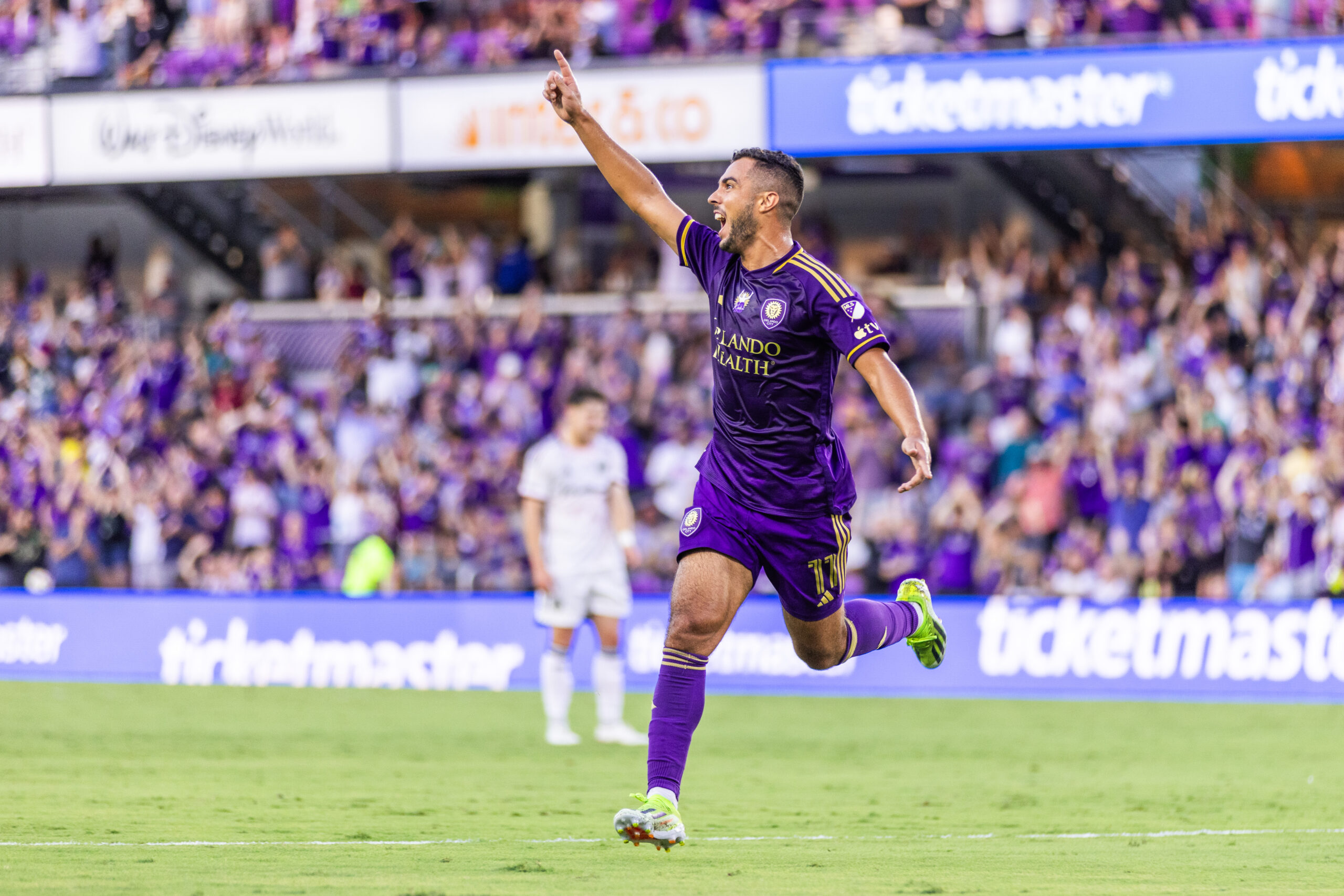
Last week, I wrote about the state of Orlando City at the halfway point of the season, focusing mostly on the team’s accomplishments on offense and defense through 17 games. For this week, let’s look at some of the top performing Lions, because it’s always fun to talk about offensive success. I do not apologize if you take offense to my desire to only focus on offense, because that would be defensive, and there is no place in this article for defense.
Many moons ago, back in January during the preseason, I wrote an article looking at the best offensive seasons in Orlando City’s MLS history. I used a derived metric called game score to rank the seasons, and I’ll quickly explain again how that is calculated:
Goals Scored + Expected Assists + 0.0113 (Progressive Carries + Progressive Passes)
I went into much more detail about why that is the calculation in the original article, but the quick and dirty version is that scoring goals, completing passes to players in dangerous scoring areas, and progressing the ball by dribbling and passing are core components of a strong offensive player. Think of the game score as an offensive value calculation, and think of it simply as a value for which more is better and the most is best.
Opta only tracked the last three contributing statistics (expected assists, progressive carries, and progressive passes) from 2018 onwards, and the chart below shows Orlando City’s 10 best MLS regular seasons since 2018. It also shows the season that currently ranks 11th — Martín Ojeda’s 2025 season, which, as a reminder, is only in game 18 of a 34-game regular season. This means, if you get the extrapolation machine out, Ojeda is on pace for a season-long game score of 26.5, which would rank as the highest full season game score in Orlando City history.
| Player | Season | Season Game Score | Rank in MLS | MLS Best that Season |
|---|---|---|---|---|
| Nani | 2019 | 22.0 | 8 | 50.7 |
| Facundo Torres | 2023 | 20.9 | 10 | 31.1 |
| Facundo Torres | 2024 | 20.0 | 21 | 32.6 |
| Facundo Torres | 2022 | 17.4 | 25 | 33.7 |
| Duncan McGuire | 2023 | 16.3 | 26 | 31.1 |
| Nani | 2021 | 16.2 | 26 | 26.6 |
| Sacha Kljestan | 2018 | 15.6 | 46 | 38.0 |
| Chris Mueller | 2020* | 14.8 | 11 | 21.8 |
| Yoshimar Yotún | 2018 | 14.7 | 53 | 38.0 |
| Dom Dwyer | 2018 | 14.3 | 58 | 38.0 |
| Martín Ojeda | 2025** | 14.1 | 4 | 16.8 |
- * The 2020 season contained only 23 games due to COVID-19
- ** Ojeda’s stats are through 18 matches; MLS teams have played between 16-19 matches
Ojeda’s 14.1 currently ranks only behind Sam Surridge of Nashville (15.7), Anders Dreyer of San Diego (16.6), and some player from Miami who clearly wants to play for Orlando since he has lion as part of his first name (Messi, 16.8). During Ojeda’s first two seasons, he only accumulated 12.1 and 12.5, respectively, so this is already by far his best season in purple and it is just barely halfway complete.
Ojeda is not the only Orlando City player who is on pace to jump into the club’s all-time top 10 by the end of the season, as teammates Luis Muriel (10.76, on pace for 20.3) and Marco Pašalić (10.46, on pace for 19.8) are both in the top 30 in MLS this season. Muriel is 24th, and Pašalić is 27th. Orlando City is the only team in the league with three players in the top 30, or really the top 27 (shout out to my son, for whom 27 is his favorite number).
One last point on Ojeda: if we were to extrapolate his performance through 18 games to 38 games, his season game score would bump up to 29.6. Why did I choose 38? Well, 38 happens to be the number of games played in the world’s most popular league, England’s Premier League. I am well aware that the Premier League is a different level of competition than MLS, but just for fun I ran the numbers on the 2024-2025 Premier League season, and a season-long game score of 29.6 would coincidentally also rank Ojeda fourth in England, right behind Cole Palmer (29.7) and in front of Alexander Isak (29.2). I do not think Ojeda would actually finish fourth if he was in the Premier League, but my point is more that the frequency of Ojeda’s contributions for Orlando City thus far this season have been similar to that of Palmer for Chelsea and Isak for Newcastle, which is pretty heady company.
Speaking of heady, we also need to talk about the player who is leading Orlando City in aerial duel wins, Alex Freeman. Heady, aerial duels…you got the segue, right? Don’t answer that.
Freeman has been on a rocket ship in the last year, going from Orlando City B starter to Orlando City starter to U.S. Men’s National Team starter, and he likely will also be the MLS All-Star Game starter, too. My mention of his leading the team in aerial duel wins, while noteworthy, was really just a convenient way to cut over to talking about him and his season-long game score of 8.1.
According to Opta’s positional tracking, only two MLS defenders have accumulated game scores of more than six thus far this season — Philadelphia’s Kai Wagner at 6.88 and Freeman’s 8.1. The extrapolation machine says 8.1 through 18 games puts Freeman on pace for a final score of 15.2, which would be the second best performance by an MLS defender since tracking began in 2018. Freeman is going to miss at least a few more games due to being with the U.S. team during the Gold Cup, so that 15.2 will likely not happen, but wow, what a great first half of a season for Orlando City’s right back.
Going back to the Premier League for comparative context…actually, please sit down and buckle up first. Are you good? Ok.
Going back to the Premier League for comparative context, there is none. Freeman’s performance blows away every defender’s from that league. It will likely surprise few that the defender with the best season game score in the Premier League this season was Trent Alexander-Arnold, who accumulated a score of 13.5 during Liverpool’s championship run. That 13.5 was 15% better than the defender who finished in second place, and yet, if we extrapolate Freeman to 38 games, he would be on pace for 17.0, which is 26% better than Alexander-Arnold. Mind the gap.
Once again, I do not mean to say that Freeman is as skilled or would contribute like Alexander-Arnold did in the Premier League. It is instead that Freeman’s contributions to Orlando City’s offense are unlike that from any defenders in the Premier League. Freeman’s performance thus far this season places him 43rd in the overall MLS rankings, first among defenders, and ahead of strikers such as Christian Benteke, Emmanuel Latte Lath, and Brandon Vazquez. He ranks fourth on Orlando City, and the Lions are not only the only club with three players in the top 30, but also the only club with four players in the top 45.
Two teams had four players in the top 45 during the 2024 MLS season, and one of them was the LA Galaxy, the eventual MLS Cup champions. I am not saying that Orlando City having four players in the top 45 this season means they will win MLS Cup, but I am not not saying it either. I am saying I would like it to happen though, and saying that loudly and clearly.
The game score metric is not the be-all, end-all of measuring offensive prowess, but I think it does a good job of creating a ranking system where the eye test matches the math. Most fans would point to Ojeda as the player who has driven Orlando City’s offense more than any other this season, and being that the team is on pace to have one of the best, if not the best, goal-scoring seasons in the club’s MLS history, it should track that Ojeda is also on pace to have one of the best, if not the best, individual offensive seasons in the club’s MLS history as well.
There are 16 more MLS games to go, and the great thing about sports is that in any game anything can happen, and that is why we love to watch. It is awesome that all three Designated Players and Freeman are off to great starts, but nothing is guaranteed for the back half of the season. That’s why they play the games, as the saying goes. For all we know, Ramiro Enrique could come on like gangbusters in the final games and rip off double-digit goals to end as the team’s leading scorer.
Ramiro, this is a bold strategy, and I am on board for it. The more goals the merrier. Feel free to bring us fans some goals for Christmas in July.
Orlando City does not have a game this weekend, with next match coming June 25 on the road in St. Louis. Winning that game would give the Lions their third winning streak of the season and would be something I would very much like, since I will be doling out the grades for that game. And since I have been writing about the offense this week, how about three goals and three points?
Vamos Orlando!
-

 Local Soccer Events4 days ago
Local Soccer Events4 days agoUlsan HD FC vs. Mamelodi Sundowns FC: Final Score 1-0 as South African Side Wins First FIFA Club World Cup Match in Orlando
-
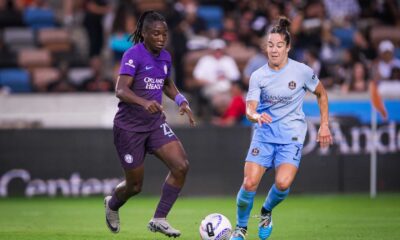
 Orlando Pride2 weeks ago
Orlando Pride2 weeks agoOrlando Pride vs. Houston Dash: Preview, How to Watch, TV Info, Live Stream, Lineups, Match Thread, and More
-
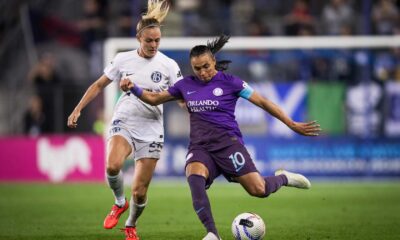
 Orlando Pride1 week ago
Orlando Pride1 week agoOrlando Pride vs. Bay FC: Preview, How to Watch, TV Info, Live Stream, Lineups, Match Thread, and More
-
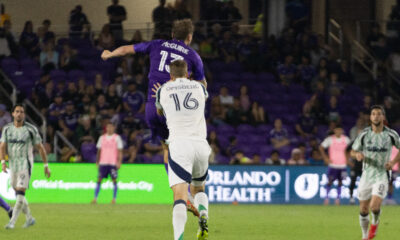
 Orlando City2 weeks ago
Orlando City2 weeks agoOrlando City Striker Duncan McGuire Undergoes Shoulder Surgery
-

 Orlando City6 days ago
Orlando City6 days agoOrlando City vs. Colorado Rapids: Final Score 1-0 as Ojeda’s Goal Snatches Road Win for Lions
-
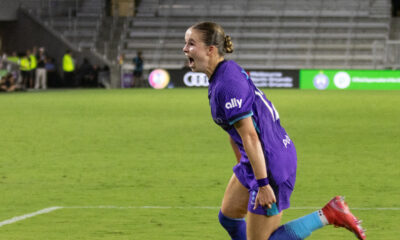
 Orlando Pride2 weeks ago
Orlando Pride2 weeks agoOrlando Pride vs. Houston Dash: Final Score 1-0 as Cori Dyke’s Goal at the Death Lifts Pride
-
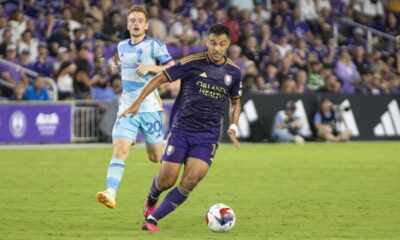
 Orlando City7 days ago
Orlando City7 days agoOrlando City vs. Colorado Rapids: Preview, How to Watch, TV Info, Live Stream, Lineups, Match Thread, and More
-
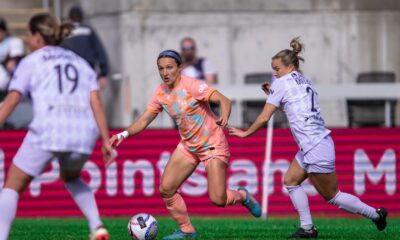
 Orlando Pride22 hours ago
Orlando Pride22 hours agoOrlando Pride vs. Racing Louisville FC: Preview, How to Watch, TV Info, Live Stream, Lineups, Match Thread, and More


